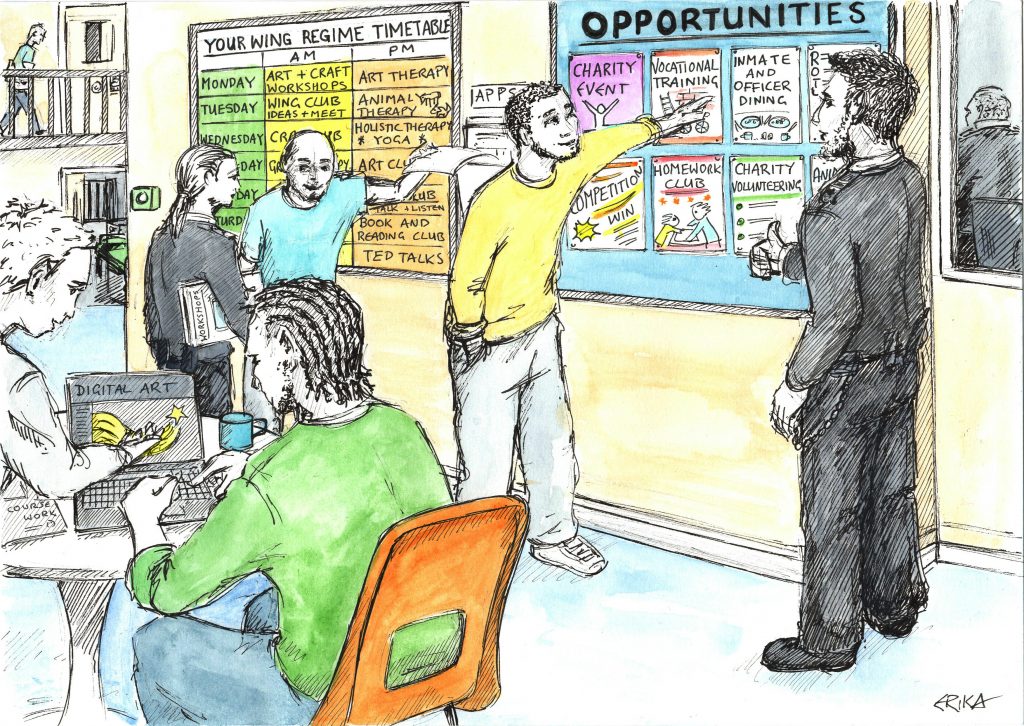Prisons need to become places of purpose, not just punishment
A clear and shared vision of the purpose of imprisonment has been described by prisoners as “essential” in a new report published today (1 December) by the Prison Reform Trust.
The report has been published as prison leaders consider how to “build back better” following nearly two years of severe restrictions brought about by the coronavirus pandemic, and a decade of declining standards in jails in England and Wales.

Following a wide consultation of 650 prisoners across 50 prisons in England and Wales, the report ‘It doesn’t have to be like this’ is the fourth in a series by the Prisoner Policy Network, which seeks to promote prisoners’ solutions to addressing the challenges facing our prison system.
Prisoners were clear that a lack of support from the prison system to help them build paths to a better future was failing victims, communities and them.
“[T]o protect the public [we] need a fit for purpose prison system that rehabilitates.”
PPN contributor
Prisoners wanted to know that there was a purpose to their time inside. And they wanted the prison regime to make use of their time to deliver that purpose. As one person contributing to the report said:
“If the men [in prison] could work through the reasons they are here, deal with trauma, see some role models and how it doesn’t have to be like this, then I think the prison system could be proud of how it is protecting the public. At the moment, its failing in that job, because people leave worse and more risky than when they came in.”
The report makes clear that the last 18 months has taken its toll on prisoners’ resilience and hope for the future. As a result, many responses highlighted the low expectations that people in prison were starting from.
“I have ‘regressed’ to the basics for so long that I’m not that bothered about the regime anymore. As long as I can phone my family, exercise and shower every day, I truly don’t care about anything else.”
PPN contributor
As prison leaders plan for life beyond the pandemic, the report highlights a number of areas that any future prison regime must consider. These include:
- Meeting basic daily needs must be a priority for recovery. These are the foundation of a stable and successful prison community.
- The prison environment should mirror the outside community as much as possible. This includes a longer working day for prisoners; studying for qualifications which outside employers value; and being able to create and maintain more typical parental or familial relationships.
- Prison management and staff should encourage and cultivate a community between prisoners and the establishment they are living in—with more opportunities to get involved in decision making, activity planning, and sentence progression.
- Safety must be built on trusting relationships, not punitive actions or fear of reprisal. There should be consistent application and adherence to prison policies, applied fairly to prisoners and staff alike.
- The prison workforce needs to be more diverse, and create an environment that respects everyone’s cultural background.
- A greater focus on improving links with the wider community to give people the best chance of success on release, including housing, employment opportunities, support networks, and healthcare.
Commenting, Peter Dawson, director of the Prison Reform Trust said:
“This is a critical moment for prisons, and there are big decisions to make about the principles that will determine the future of our prisons. This report shows why prisoners must contribute to those decisions. They share the ambitions of many who work in prisons both for what day to day life should be like and for how they can build a better future after release. But the report also shows what a mountain there is to climb, and how the potential of prisoners to contribute to better prisons is wasted.
“One thing is crystal clear. A safe and purposeful prison community is built on the relationships between those who work in prisons and those who have to live there. Those relationships cannot be built on the isolation and repression of the last 18 months.”